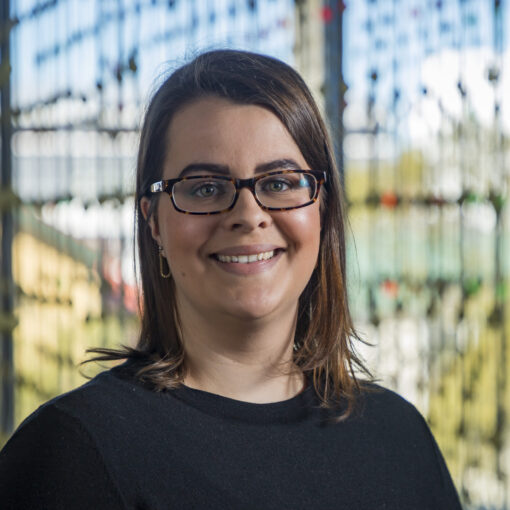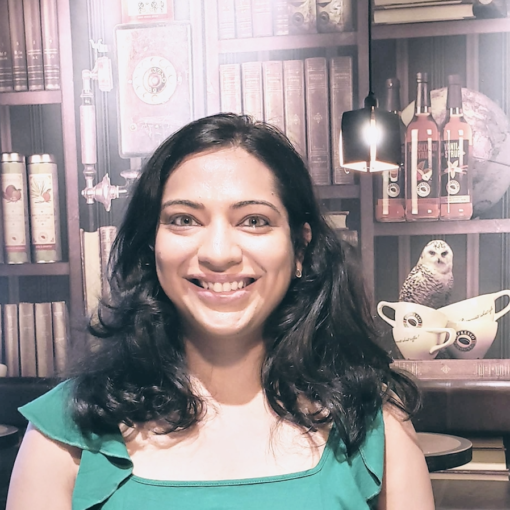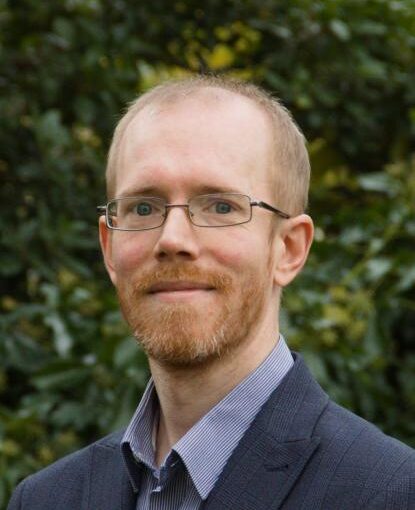PhD in English, University of Oxford (2021)
| Producer & Project Manager | |
|---|---|
| Charisma Entertainment and The Oxford Research Centre for the Humanities | |
Sector: Tech / Entertainment
Year entered into a non-academic position: 2021
Job highlight: Developing trailers for a video game adaptation of John Wyndham’s sci-fi novel, The Kraken Wakes
What’s your background?
I’ve always been interested in the Arts & Humanities, so I did an undergraduate degree in English, followed by a Masters and a DPhil at Oxford, because I felt like there was more to discover and to do. Most of my research was on English plays in the early modern period (1500 – 1700 CE).
Why did you move away from academia?
I decided about halfway through the DPhil that I didn’t want an academic job. I wanted to work collaboratively with other people, I wanted more public engagement, and I wanted clearer working hours without having to worry that I wasn’t doing enough. The idea of a job which involved producing and delivering results quickly was also very appealing compared to academic work, like publishing articles, which typically takes a longer time and has a less immediate impact on society.
How did you get this job? Did you face any challenges when considering a move away from academia or applying for the role?
A few years into the DPhil, I responded to a job advert for a project exploring Shakespeare and gaming, and I ended up working part-time on a collaboration between Oxford University and Charisma Entertainment. We developed an interactive, AI-powered game based on Shakespeare’s plays which allows school students to engage with these stories in new ways. Especially during the Covid-19 pandemic, this project generated a welcome sense of structure and purpose for me. Eventually, when I finished my DPhil in 2021, I was looking for a job and had a portfolio which combined experience in both the humanities and tech. Because I enjoyed working with Charisma Entertainment, I spoke to them about potential opportunities with the company, and secured the Producer/Project Manager role.
What motivated you to/why did you choose the sector you transitioned into?
It wasn’t really a conscious choice – I knew I enjoyed the part-time work with Charisma Entertainment while doing my DPhil, so the company itself was a draw-factor. For me, it has also been useful to see the overlap between the humanities and the tech sector. There is sometimes the impression that humanities researchers, if they leave academia, tend to work in museums or theatres.
In reality, however, there are lots of tech companies who are looking for people with a creative skillset, so don’t be put off if you have a humanities degree. Although I’m in the tech sector, I see my current position as a “creative” role.
Did you think you had the skills required for your current position before you started? Were you right?
When I first started working part-time for Charisma in 2019 and creating products on their platform, I didn’t have that much knowledge of tech. But I was quite used to teaching myself new skills, getting to the bottom of problems, and other research skills which helped me adapt to the demands of the position.
Charisma’s interactive writing platform is a no-code platform, aimed specifically at creatives, so I haven’t had to learn any actual coding skills as part of the role. However, I have taught myself video editing, and learned to work with various different website content management systems. I’ve also had to get up to speed with a lot of terminology and acronyms – SDKs and APIs! – but my humanities background has been helpful for taking the more complex tech concepts and communicating them to non-tech audiences in an accessible way.
How did your PhD prepare you for your current job? For example, what were the transferable skills that you developed during your PhD that are most relevant to your current job?
On top of the things I mentioned earlier, writing is a skill that remains a big part of my job, whether drafting newsletters or storyboarding. Writing is often a skill that’s underrated by DPhil students because it’s taken for granted – it’s just the currency we trade in – but in fact a lot of people don’t have the same level of skill in writing despite being incredibly proficient in many other areas. Another important skill is public speaking. The experience of presenting papers at academic conferences and seminars will help you when you have to do presentations for colleagues and clients.
Can you describe a typical week in your job?
It’s quite varied! Charisma Entertainment is a pretty small company, so when there’s a big project coming up it’s usually “all hands on deck”. Though we have an office in Oxford, almost all of us work remotely so there’s a team check-in every morning and evening where we discuss our tasks. Apart from that, a typical week might involve me creating storyboards for upcoming projects, working with video editors to develop marketing content, or testing games.
Two days each week I also work with TORCH (The Oxford Research Centre for the Humanities) and that’s a standard project manager role where I’m responsible for one long-term project called “Conversational Learning”, and oversee almost every aspect of it, including reporting, evaluation, and budgeting. The different natures of my two roles – with Charisma and with TORCH – add a nice variety to my work.
What are your favourite parts of your job?
Anything creative! Putting together a video, writing a story, developing learning resources for teachers – I love how my job has space for me to come up with things that haven’t been thought about before. If it weren’t for that, I would probably miss academia a lot more, so I really appreciate how my job helps to develop my writing and creativity.
Do you have any advice for current graduate students and postdocs considering a career outside of academia?
When you’re in the academic world, it often feels like you’ve spent many years building towards a particular academic career path, and that choosing to do anything else would mean “starting from scratch”, maybe even getting different qualifications. But in fact, there are many jobs out there which don’t need that.
Career changes are relatively normal – if someone had been doing marketing for 5 years, then decided to transition into fundraising, we wouldn’t consider her marketing experience a “waste”.
Similarly, transitioning out of academia doesn’t have to be a “waste” of the time and energy you’ve invested into your work.
I’d also suggest doing things other than research while you’re pursuing your PhD – try a few things out and see what you enjoy. Departments often have opportunities for you to explore public engagement. At Oxford, for example, you can apply for micro-internships through the Careers Service.
Can you recommend any relevant resources, organisations or events that might help somebody new to the sector find out more about it?
Towards the end of my DPhil, I arranged a meeting with a Careers Service advisor, and when I told them that I was considering a career outside academia they were really reassuring and positive. So I’d suggest having a chat with them, but in a targeted way, probably with a good sense of which sector(s) you’re most interested in.

Charisma is a creative AI company specializing in immersive story-led experiences. Their award-winning, no-code platform allows creators to build interactive stories for training, education, TV and film, immersive theatre, gaming and more. Charisma works with major media brands including the BBC, Sky, WarnerMedia and Dreamworks, alongside R&D partners including Oxford University and StoryFutures. To find out more, including about potential career opportunities, visit the Charisma website at www.charisma.ai.

TORCH (The Oxford Research Centre in the Humanities) is a hub for intellectual collaboration and cross disciplinary research projects, based in the Humanities at the University of Oxford.
Their funding, training and networks develop research projects and careers, and their engagement activity increases the social impact and understanding of humanities research amongst a wider public audience. Find out more on the TORCH website: https://torch.ox.ac.uk/.





